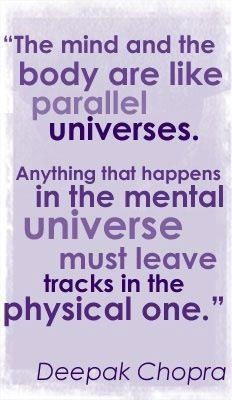
Quick Hits:
- If you don’t know something, that doesn’t make you a bad person.
- Anatomy, identity, expression, sexuality – are four distinct components of our lives that deal with gender.
- These four components, like most things in life, exist on a spectrum, which is to say, they are non-binary or have more than two possible outcomes.
- To be transgender is defined by each individual, but basically refers to the extent to which a person’s gender identity, role, or expression is different from the cultural norms prescribed for people of a particular sex. For example – a person could have the anatomy of a female but identify and/or express themselves in a way that is less feminine, or more masculine, than cultural norms.
- Transgender / Gender nonconforming people have been around forever. The way cultures have responded to them has changed. For example, indigenous cultures referred to GNC people as “Two Spirited”, and they were revered as healers and visionaries.
- Gender nonconforming (GNC) folks are not dangerous. Tragically, GNC folks are much more likely to be the targets of violent crimes than to be perpetrators.
First off – not knowing something is nothing to be ashamed of. If you’re confused about some aspect of identifying as transgender, there is nothing wrong with you! This post is designed to help. My goal is to provide some basic factual information on this topic. My hope is that this information will help you be more comfortable and feel better informed when you interact with folks who identify as transgender, or gender nonconforming (GNC).
Let’s dive in!
What helped me most as I was learning about gender non-conforming (GNC) folks was to understand that anatomy, identity, expression, and sexuality are different things. So, let’s cover that real quick.

Anatomy – as humans, our anatomy develops in predictable ways. We are assigned a gender at birth based on our external sex organs (like a penis). This can differ from our internal sex organs (like a uterus). It’s rare, but sometimes our internal and external sex organs do not align with the same gender. This is called “ambiguous genitalia”. This is NOT the same thing as being transgender or GNC. Main point: there are more than two possible combinations of our gender anatomy, so the description is non-binary (has more than two possible outcomes), and our biological make-up is different from our expression, identity, and sexuality. You can learn more about ambiguous genitalia here: http://www.mayoclinic.org/diseases-conditions/ambiguous-genitalia/basics/definition/con-20026345
Identity – deep in our brains, in the same area that informs you that you love pizza and hate anchovies, this is where your identity lives. It tells you what feels right. Our cultural norms tell us that men hold doors open and love football, but our brains tell us what feels right. Maybe you love hitting things. Maybe you love ballet dancing. Your brain is informing your preference. Your culture is naming it with a gender. The things your brain tells you to like may be more masculine or feminine when compared to cultural norms. I, for example, love football, hitting things, and steak, as much as I love musical theater, romantic comedies, and the color purple. Main point: there are more than two possible combinations of our identities, so the description is non-binary (has more than two possible outcomes), and our identity is different than our anatomy, expression, and sexuality.
Expression – is completely external. So far (with anatomy and identity) we’ve been discussing things that come from within our bodies. Expression has everything to do with our external presentation to the world. Some of us prefer to wear baggy clothes. Some prefer suits. Some prefer yoga pants. Some prefer make-up. Some prefer beards. Our expression can tell the world how we prefer to be seen. Many times our preferences for gender expression conform with cultural norms. Sometimes they don’t. Main point: there are more than two possible combinations of gender expression, so the description is non-binary (has more than two possible outcomes), and is different than our anatomy, identity, and sexuality.
Sexuality – this is who we love and who we want (or do not want) to have sex with. As you may have guessed by now, these preferences live deep in our brains and are non-binary – or exist on a spectrum. Some people are attracted to stereotypically masculine/feminine traits and only those traits. Some people like a little of this and a little of that. The main point is that there are more than two combinations of sexuality, so the description is non-binary (has more than two possible outcomes), and is different than our anatomy, identity, and expression.
Ok, so now we know what anatomy, identity, expression, and sexuality are in this conversation. But, the question remains, WTH does it mean to be transgender?! Here’s the answer…
To be transgender most commonly means that your identity is not the same as your anatomy.
An even better definition is that being transgender refers to the extent to which a person’s gender identity, role, or expression differs from the cultural norms prescribed for people of a particular sex.
However, there are two important points to consider when we are thinking about definitions.
First, let a person tell you what they want to be called. Just like you might prefer to be called “Italian” as opposed to “European”, we all have our own reactions to labels. So, if you don’t know a person’s preference, simply ask, “what do you prefer to be called?” Another good question is, “what are your preferred gender pronouns?” This will let you know if you should say “he/him/his” , “she/her/hers”, “they”, etc. when referring to this person.
Secondly, we’ve outlined four different components (anatomy, identity, expression, and sexuality) that deal with gender and established that each component exists on a spectrum (is non-binary). So there are many, many combinations of ways these components could intersect for a person.
If you’re not sure what term to use, I suggest using the term “gender non-conforming” (GNC). It respectfully covers the spectrums. Gender non-conformity (GNC) refers to the extent to which a person’s gender identity, role, or expression differs from the cultural norms prescribed for people of a particular sex.
Whew! Now we know what “transgender” means!
I have one more important point I want to make on this topic. It has to do with fear. You have interacted with many GNC folks without knowing it. This fact may be confusing, and even scary, but this confusion and fear is a result of your natural reaction to that which is different – not factual human behavior. Here’s what I mean…
GNC folks, as a population demographic, are less, not more, dangerous than just about any other demographic you could think of that deals with gender.
In fact, recently (April 2016) the National Task Force to End Sexual and Domestic Violence Against Women, which is comprised of thousands of experts in the field, published a letter stating that GNC folks pose no inherent risk to others – particularly women. You can read their statement here: http://4vawa.org/4vawa/2016/4/21/full-and-equal-access-for-the-transgender-community
Furthermore, of all the homicides in 2013 that were classified as hate crimes, 72% of the victims were transgender women – that likely means they were anatomically men who identified and/or expressed as feminine. So, not only are GNC folks less likely to be violent, but they are more likely to be victims. These brothers, sisters, sons, daughters, and neighbors of ours are not to be feared. In fact, they have much more to fear than most of us.
Final thought: Like anything else, when we find something to be confusing, our brain usually, automatically labels it as “less-than” and/or dangerous. I am encouraging you to fight that urge. Fight that fear response. Rise above it. The fact is you’ve already interacted with many GNC folks – and they were pleasant, and respectful, and not scary. Next time you get a chance to do so, be intentional about showing them the same love and respect you would anyone else. If you want to know something about them, respectfully ask them, just like you would anybody else. The key term is “just like you would anybody else”. Asking “how do you prefer to be addressed?” or “how can I be a better ally to you?” are rooted in concern. Asking, “are you going to have the surgery?” or “does this make you gay?” are rooted in curiosity and are not questions you would typically ask of someone you just met. Life is tough enough as it is. Let’s not let superficial differences make it tougher for ourselves or others. Please see the links below for more information.
 Summary:
Summary:
There’s nothing wrong with not knowing something. Just be respectful with your questions.
Anatomy, identity, expression, and sexuality all exist on a spectrum (are non-binary) and are different from one another.
Being transgender or gender non-conforming (GNC) refers to the extent to which a person’s gender identity, role, or expression differs from the cultural norms prescribed for people of a particular sex.
Individuals may prefer different terms to define their identities. If you don’t know someone’s preference, simply ask, “how do you prefer to be addressed?”
GNC folks are not dangerous. If you don’t believe me, just ask thousands of trained professionals working to protect women all over the country. Their position is articulated here: http://4vawa.org/4vawa/2016/4/21/full-and-equal-access-for-the-transgender-community
GNC folks are a particularly vulnerable population as they are disproportionately targeted for hate crimes.
Just like anyone else, GNC folks deserve our respect and love.
More information:
FAQ: http://www.glaad.org/transgender/transfaq
The Genderbread Person (great resource!) – http://itspronouncedmetrosexual.com/genderbread-person/#sthash.5CiYYY2I.dpbs
World Professional Association for Transgender Health – www.wpath.org
Violence statistics: http://www.avp.org/storage/documents/ncavp_transhvfactsheet.pdf
Gender ambiguity: http://www.mayoclinic.org/diseases-conditions/ambiguous-genitalia/basics/definition/con-20026345




 Summary:
Summary:


 What is true recovery? It can involve several facets, but put simply, it is doing the inner work. It is looking at our childhood and family-of-origin and seeing the patterns (or schemas) that we learned. For example, when you were a child, how did you learn to get what you wanted and needed? If you had an angry parent, did you learn to placate and be a people pleaser, or did you learn to withdraw and deny your feelings? Did you learn to do things as close to perfection as possible, or did you become ashamed of all your efforts?
What is true recovery? It can involve several facets, but put simply, it is doing the inner work. It is looking at our childhood and family-of-origin and seeing the patterns (or schemas) that we learned. For example, when you were a child, how did you learn to get what you wanted and needed? If you had an angry parent, did you learn to placate and be a people pleaser, or did you learn to withdraw and deny your feelings? Did you learn to do things as close to perfection as possible, or did you become ashamed of all your efforts?